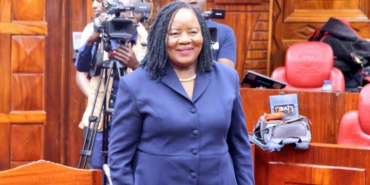2024: The Year Kenya's Courts Battled Multiple Public Participation Challenges

A series of landmark court rulings in 2024 have highlighted the crucial need for public participation in Kenya's legislative processes.
This judicial scrutiny has underscored the significant role that citizen engagement plays in the development of laws and has drawn attention to the potential repercussions of neglecting this democratic ideal. One of the pivotal cases involved the Finance Act 2023, which was annulled by the Court of Appeal on the grounds that numerous amendments made post-consultation had not undergone additional public review.
In their decision, Judges Kathurima M'inoti, Agnes Murgor, and John Mativo deemed these sections unconstitutional, insisting that Parliament is obligated to provide justifications for the acceptance or rejection of public input. The Supreme Court subsequently overturned this ruling, reinstating the Finance Act while establishing a clarified framework for public engagement.
In the proceedings, Busia Senator Okiya Omtatah, aided by advocates from civil society organizations, contended that the government's response to public feedback was insufficient. They noted that out of 58 submissions, only four had been addressed, and no explanations were provided for the rejection of the others. Their arguments highlighted a pressing need for transparency and accountability in legislative actions.
The Supreme Court’s ruling elaborated that while public participation must be authentic, it does not necessitate the acceptance of every citizen's proposal. The Court clarified that amendments made to reflect already collected public feedback do not require further consultations. This interpretation elicited varied responses, with the Law Society of Kenya and other justice advocates expressing concerns regarding the ruling's broader implications.
Further legal challenges arose concerning other legislative measures, including the rollout of the Social Health Insurance Fund (SHIF) and the Privatisation Act, both criticized for inadequate civic engagement. Justice Chacha Mwita struck down the Privatisation Act, citing a lack of meaningful public involvement. This ruling effectively halted the sale of significant national assets such as the Kenya International Convention Center, pending public consent.
These judicial outcomes have exposed procedural deficiencies within the legislative framework, thereby questioning the government's dedication to upholding democratic principles. The decisions emphasize the need to incorporate adequate public involvement in law-making to preserve both legitimacy and effectiveness.
Despite these challenges, the government has expressed a renewed commitment to enhancing public participation in future legislative endeavours.














Add new comment